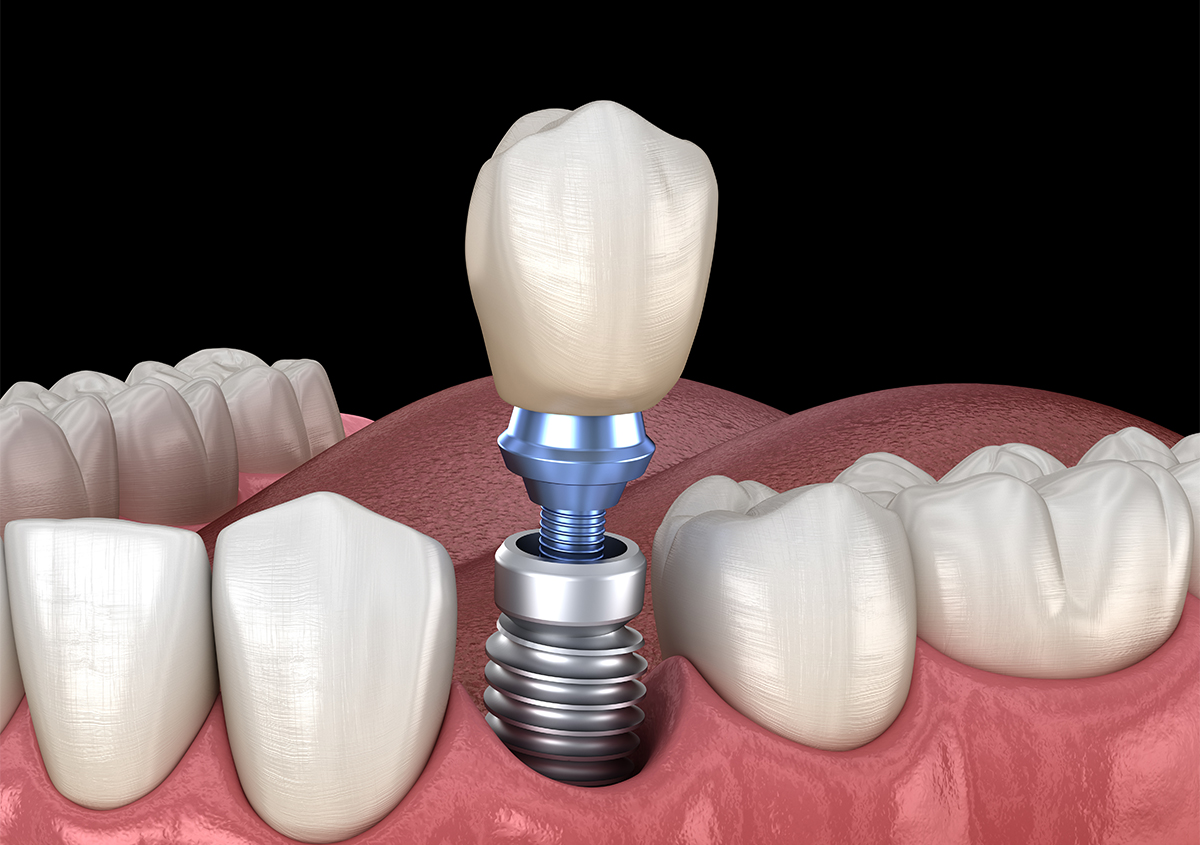
23
Jun
For a Sustained Healthy, Stunning Smile: Implant After-Care, Long-Term Care of Implant-Supported Teeth

At Hunt Valley Dental in Hunt Valley, Maryland, we congratulate you for embarking on your journey to a healthier smile that exudes vibrancy and confidence. As you look into or prepare for the process of replacing teeth with dental implants, we know you probably have a lot of questions about what to expect. Our dentist, Dr. Thomas Rhodes, is transparent in clearly explaining every step of the process. With his considerable expertise and precision technologies, Dr. Rhodes assures that implants are precisely positioned to support your replacement teeth optimally. He also ensures that each patient has easy-to-understand instructions on after-care. Additionally, our patients have easy access to the team should questions or concerns arise as the implants heal and even after the crown, bridge, or denture has been placed.
With good care, implant-supported teeth can last a lifetime!
Post-Implant Placement
Implant surgery is a straightforward, in-patient procedure. Discomfort can be managed with local anesthesia. We can also discuss sedative options for utmost relaxation and comfort. That said, any tenderness or discomfort afterward is not dissimilar to other types of oral surgery. Do not be alarmed by swelling, bruising, and minor bleeding. In most cases, discomfort can be managed with OTC medications. Of course, you are always welcome to contact our team with any concerns about symptoms or questions about what to do following the procedure.
Many variables can affect the amount of time required for your implants to heal. The implant joins the surrounding jawbone during this healing period – a process called “osseointegration.” This process is integral to the health and viability of your replacement teeth because a solid implant provides the foundation for the prosthetic tooth. After all, it is designed to function as a tooth root, quite literally “rooting” the replacement tooth in the jaw.
Generally, we recommend a diet of soft (not chewy, fibrous, or hard) foods for the first couple of weeks following your procedure. This helps to support healthy and fast healing. Most implant systems also include the placement of an “abutment.” This piece functions as a connector. It connects the implant to the overlying replacement tooth. Sometimes, abutments may be added at the time of implant placement. We will discuss the timing of abutment placement, as needed, with you.
The Long, Healthy “Life” Of Your Complete Smile
Once your teeth have been replaced, the beauty of these systems is that they require no special maintenance or care. They are designed like natural teeth, from the roots upwards. As such, they can also be treated like natural teeth. Be sure to maintain periodic check-ups at our office, as advised by Dr. Rhodes. We can demonstrate and/or recommend oral hygiene products and techniques to use at home during these visits. While prosthetic teeth do not decay like natural teeth, implants can develop a gum disease-like inflammation called “peri-implantitis.” This condition can threaten the health of the implant and is a leading cause of late implant failures. It can be avoided with the usual consistent oral hygiene.
We see the tremendous positive influence tooth replacement has on our patients’ lives every day. We look forward to making a positive difference in your health and overall quality of life. Schedule an appointment with Dr. Rhodes today by calling Hunt Valley Dental at (410) 771-6300.

